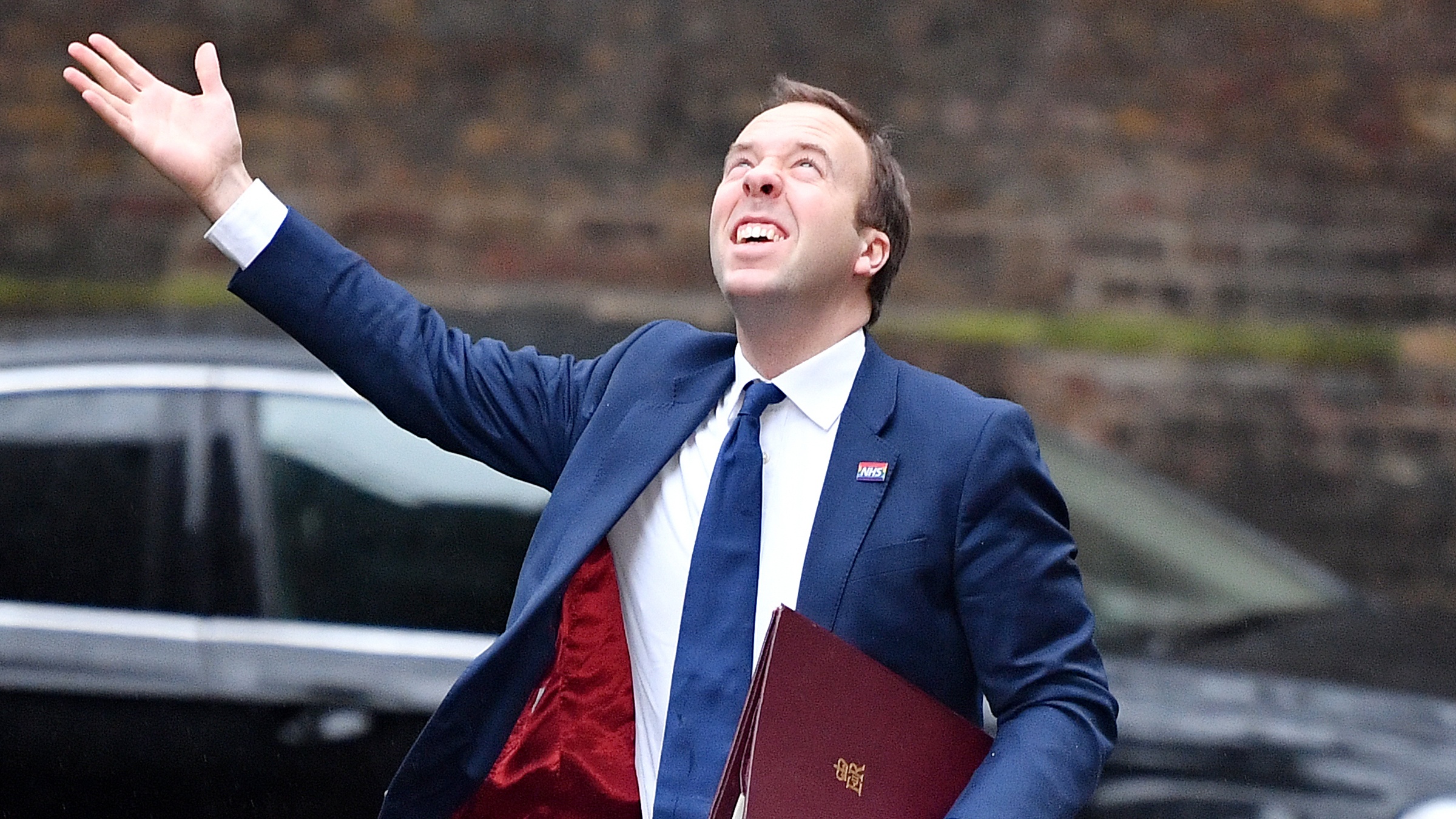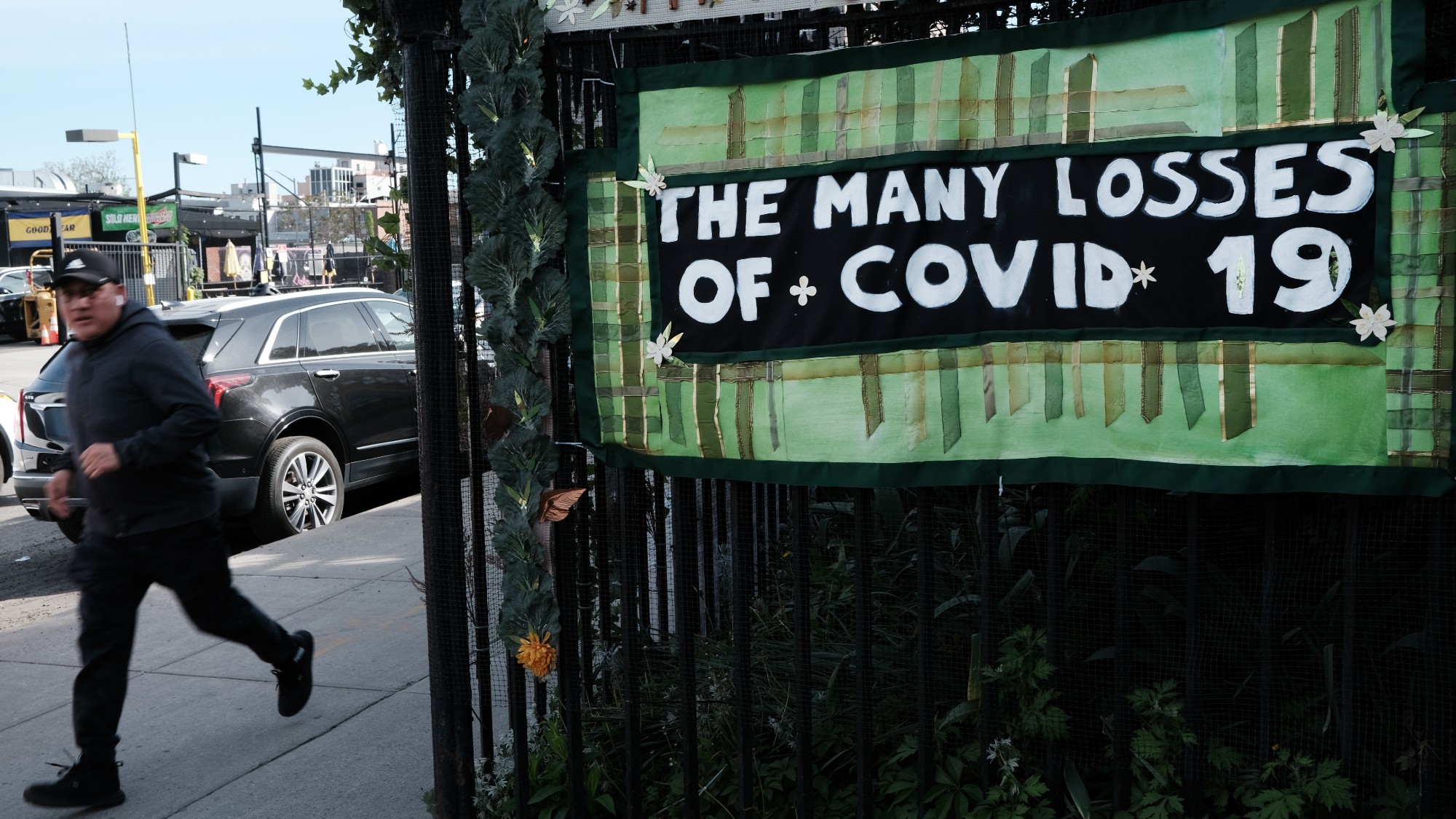Coronavirus: UK government ‘watered down’ advice on effective hand sanitisers
Investigation reveals how Downing Street ignored WHO’s pre-lockdown push for use of alcohol-based rubs

The UK government quietly dropped official advice from international health experts on effective hand sanitisers just ten days before the country entered lockdown, it has emerged.
An investigation by Sky News has found that “hundreds of thousands” of alcohol-free sanitisers that “take up to two minutes to kill coronavirus” are being used in schools, homes and businesses across Britain.
But the World Health Organization (WHO) says that hand wash should contain at least 60% alcohol in order to be effective against Covid-19, after two separate studies found that these sanitisers take just 20 to 30 seconds to kill the virus.
The Week
Escape your echo chamber. Get the facts behind the news, plus analysis from multiple perspectives.

Sign up for The Week's Free Newsletters
From our morning news briefing to a weekly Good News Newsletter, get the best of The Week delivered directly to your inbox.
From our morning news briefing to a weekly Good News Newsletter, get the best of The Week delivered directly to your inbox.
At the start of the pandemic, Downing Street also advised members of the public to “use an alcohol-based hand sanitiser that contains at least 60% alcohol if soap and water are not available”.
But this guidance was withdrawn without explanation on 13 March, days after Health Secretary Matt Hancock said that the Department of Health was “making sure the public knows exactly what they should be doing to keep themselves and others safe”.
“Since then, advice from Mr Hancock's department and Public Health England has made no mention of what hand sanitiser should contain,” Sky News reports.
According to a 2014 review published in the Clinical Microbiology Reviews journal, alcohol in hand sanitiser kills viruses by “breaking apart proteins, splitting cells into pieces or messing with a cell’s metabolism”, says Live Science.
A free daily email with the biggest news stories of the day – and the best features from TheWeek.com
Although “solutions with as little as 30% alcohol have some pathogen-killing ability”, research has shown that “alcohol kills a more broad variety of bacteria and viruses when the concentration exceeds 60%, and it works faster as the concentration increases”, the site reports.
Dr Katie Maddock, head of Keele University’s School of Pharmacy and Bioengineering, has condemned the UK government’s decision to withdraw its intial advice on hand sanitisers.
“I think it is very confusing for people,” Maddock told Sky News. “I think if we just choose a track and stick to it, and the alcohol has got the evidence base, that’s where we should be.”
Joe Evans is the world news editor at TheWeek.co.uk. He joined the team in 2019 and held roles including deputy news editor and acting news editor before moving into his current position in early 2021. He is a regular panellist on The Week Unwrapped podcast, discussing politics and foreign affairs.
Before joining The Week, he worked as a freelance journalist covering the UK and Ireland for German newspapers and magazines. A series of features on Brexit and the Irish border got him nominated for the Hostwriter Prize in 2019. Prior to settling down in London, he lived and worked in Cambodia, where he ran communications for a non-governmental organisation and worked as a journalist covering Southeast Asia. He has a master’s degree in journalism from City, University of London, and before that studied English Literature at the University of Manchester.
-
 Grok in the crosshairs as EU launches deepfake porn probe
Grok in the crosshairs as EU launches deepfake porn probeIN THE SPOTLIGHT The European Union has officially begun investigating Elon Musk’s proprietary AI, as regulators zero in on Grok’s porn problem and its impact continent-wide
-
 ‘But being a “hot” country does not make you a good country’
‘But being a “hot” country does not make you a good country’Instant Opinion Opinion, comment and editorials of the day
-
 Why have homicide rates reportedly plummeted in the last year?
Why have homicide rates reportedly plummeted in the last year?Today’s Big Question There could be more to the story than politics
-
 The high street: Britain’s next political battleground?
The high street: Britain’s next political battleground?In the Spotlight Mass closure of shops and influx of organised crime are fuelling voter anger, and offer an opening for Reform UK
-
 Is a Reform-Tory pact becoming more likely?
Is a Reform-Tory pact becoming more likely?Today’s Big Question Nigel Farage’s party is ahead in the polls but still falls well short of a Commons majority, while Conservatives are still losing MPs to Reform
-
 Taking the low road: why the SNP is still standing strong
Taking the low road: why the SNP is still standing strongTalking Point Party is on track for a fifth consecutive victory in May’s Holyrood election, despite controversies and plummeting support
-
 What difference will the 'historic' UK-Germany treaty make?
What difference will the 'historic' UK-Germany treaty make?Today's Big Question Europe's two biggest economies sign first treaty since WWII, underscoring 'triangle alliance' with France amid growing Russian threat and US distance
-
 Is the G7 still relevant?
Is the G7 still relevant?Talking Point Donald Trump's early departure cast a shadow over this week's meeting of the world's major democracies
-
 Angela Rayner: Labour's next leader?
Angela Rayner: Labour's next leader?Today's Big Question A leaked memo has sparked speculation that the deputy PM is positioning herself as the left-of-centre alternative to Keir Starmer
-
 Is Starmer's plan to send migrants overseas Rwanda 2.0?
Is Starmer's plan to send migrants overseas Rwanda 2.0?Today's Big Question Failed asylum seekers could be removed to Balkan nations under new government plans
-
 'There is a certain kind of strength in refusing to concede error'
'There is a certain kind of strength in refusing to concede error'instant opinion 'Opinion, comment and editorials of the day'